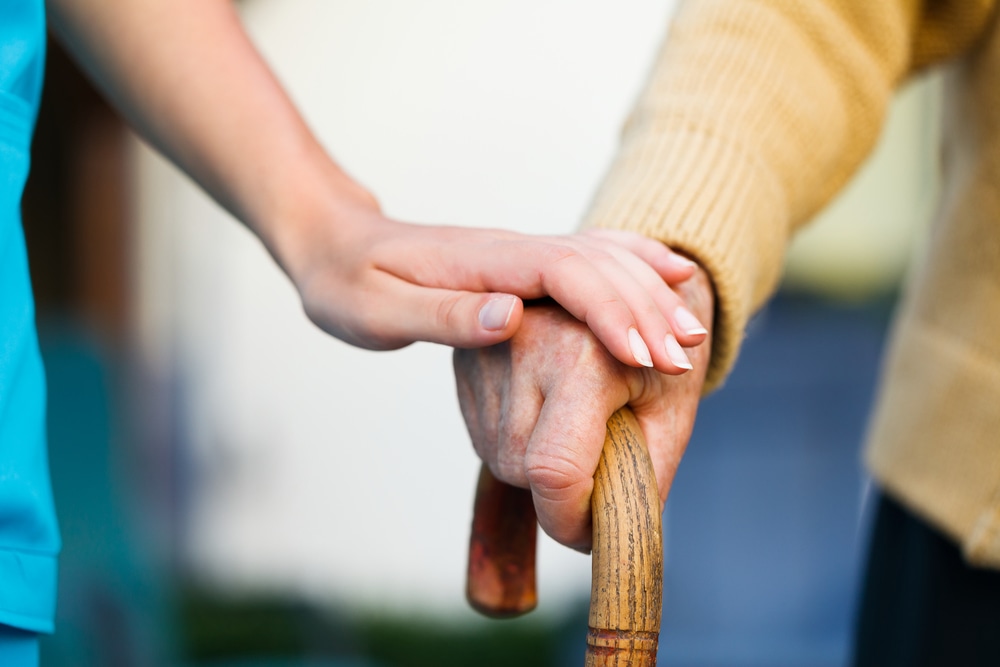The change in my mum’s mobility was quite rapid. She was a slim lady, usually light on her feet and she enjoyed regular walks. She could move fairly quickly when she was motivated to do so. Then gradually, seemingly over a period of a few months, her mobility changed. She became less agile, more prone to stumbling and her balance deteriorated. She began to look unsteady on her feet and even her posture changed. She became more stooped and seemed to need to hold onto things more.
I took her to see the doctor who referred her to a specialist. I pointed out that the change in mobility had occurred fairly suddenly. The specialist carried out a scan of her brain and then showed me the results. You could clearly see the shrinkage of the brain caused by her dementia. He pointed out that mobility issues were to be expected. After all, dementia is a disease of the brain.
Unfortunately, it’s common that a person with dementia will be at an increased risk of having a fall as they can struggle with balance and coordination. They may move in a shuffling manner and look unsteady on their feet. This is thought to be caused by damage to tissues in the brain that relay messages for movement. Motor skills – which means our ability to move, balance and react to things – may be affected by damage to the brain. A person with dementia may also have trouble with movement after they have been sitting down or standing still for a period of time.
Sitting or lying down for too long can make things worse, so try to get the person to be as mobile as possible – if they can move around regularly with support from you or with the use of mobility aids then it is less likely to lead to pressure ulcers or sores. Sores can become infected. Sight loss can also affect a person’s mobility though not everyone with dementia will develop mobility issues according to Alzheimer’s Society. With my mum, I had to ensure she wasn’t left on her own for too long and also ensure that she had appropriate help and support when she wanted to walk to the shops. She couldn’t go to the shops on her own, though she could move around the house unsupervised for a few minutes at a time. I did however, remove obstacles that may have increased her risk of a fall, such as the coffee table she had in the middle of the lounge, and the frayed doormat, that could have caused her to trip. She refused to use the stairlift but she did have a rail on the stairs and fortunately the stairs weren’t too steep.
By the time her mobility was severely compromised, she had to move into a nursing home where her mobility and her needs were monitored 24 hours a day.
If you notice a very sudden change in the person’s ability to move, walk or balance, then it’s worth getting them to see their GP, as medication or a stroke could also be the cause. Sight problems can also be a reason, so if in doubt, check it out.
